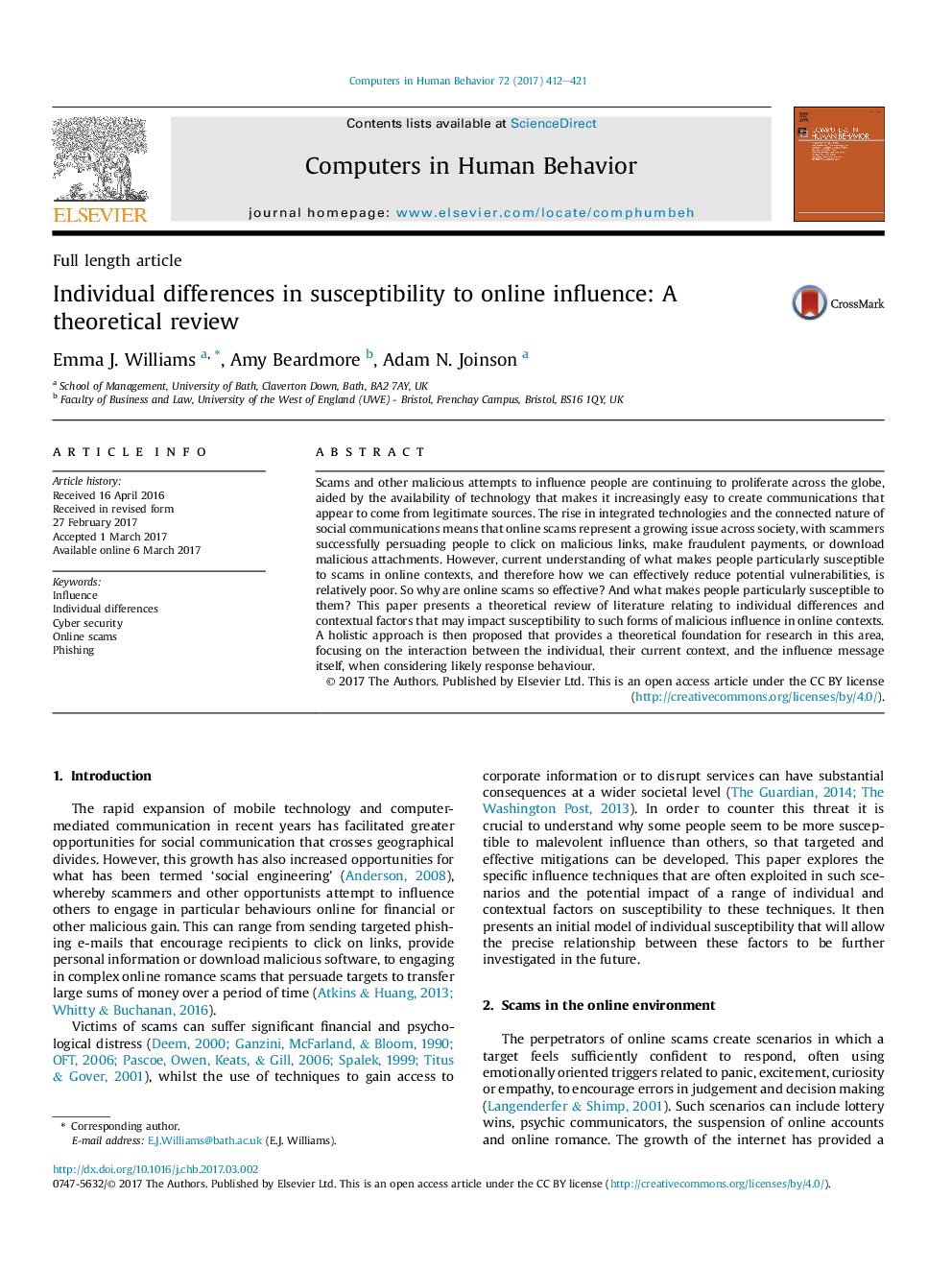ترجمه فارسی عنوان مقاله
تفاوت های فردی در حساسیت به نفوذ آنلاین: بررسی نظری
عنوان انگلیسی
Individual differences in susceptibility to online influence: A theoretical review
| کد مقاله | سال انتشار | تعداد صفحات مقاله انگلیسی |
|---|---|---|
| 134101 | 2017 | 10 صفحه PDF |
منبع

Publisher : Elsevier - Science Direct (الزویر - ساینس دایرکت)
Journal : Computers in Human Behavior, Volume 72, July 2017, Pages 412-421
ترجمه کلمات کلیدی
نفوذ، تفاوتهای فردی، امنیت سایبری، کلاهبرداری آنلاین، فیشینگ
کلمات کلیدی انگلیسی
Influence; Individual differences; Cyber security; Online scams; Phishing;
ترجمه چکیده
کلاهبرداریها و دیگر تلاشهای مخرب برای نفوذ در مردم همچنان در سراسر جهان گسترش می یابد و از طریق در دسترس بودن تکنولوژی که به طور فزاینده ای باعث ایجاد ارتباطات می شود که به نظر می رسد از منابع مشروع است، ادامه می یابد. افزایش تکنولوژی های یکپارچه و طبیعت متصل به ارتباطات اجتماعی به این معنی است که کلاهبرداری های آنلاین، یک مسئله رو به رشد در سراسر جهان را نشان می دهد، با کلاهبرداران که با موفقیت آنها را متقاعد می کند تا روی لینک های مخرب کلیک کنند، پرداخت های جعلی را انجام دهند یا فایلهای خرابکارانه را دانلود کنند. با این حال، درک در حال حاضر از آنچه باعث می شود افراد به طور خاص در معرض مخرب در زمینه های آنلاین، و بنابراین چگونه می توان به طور موثر آسیب پذیری بالقوه را کاهش می دهد، نسبتا فقیر است. پس چرا کلاهبرداری آنلاین بسیار موثر است؟ و چه چیزی باعث می شود افراد به خصوص به آنها حساس باشند؟ این مقاله یک بررسی نظری از ادبیات مربوط به تفاوت های فردی و عوامل زمینه ای است که ممکن است حساسیت به چنین گونه نفوذ مخربی در زمینه های آنلاین را تحت تاثیر قرار دهد. سپس یک رویکرد جامع است که مبنای تئوریکی برای تحقیق در این زمینه را فراهم می کند و تمرکز بر تعامل بین فرد، زمینه فعلی و پیام خود را در هنگام در نظر گرفتن رفتار احتمال پاسخ می دهد.

